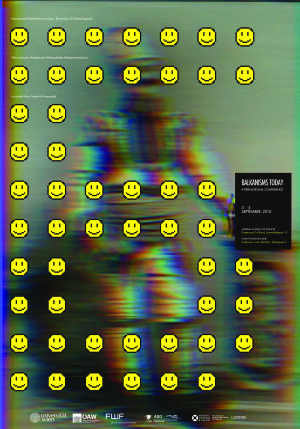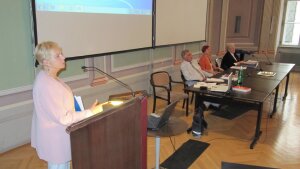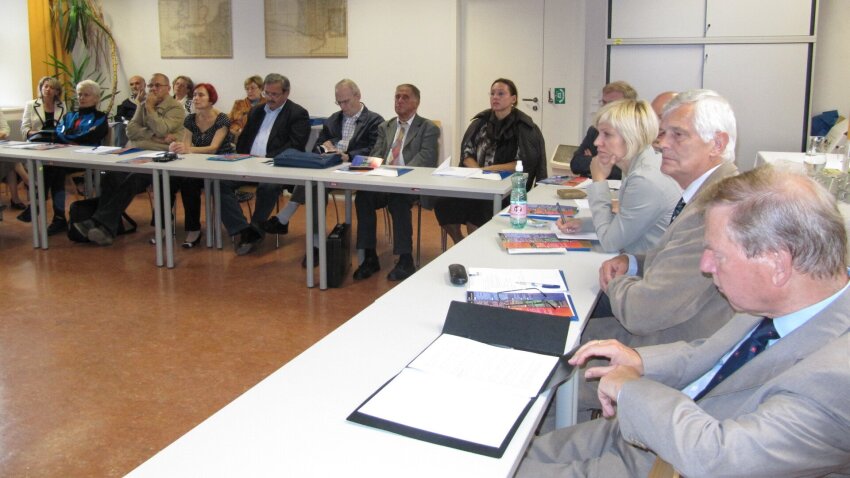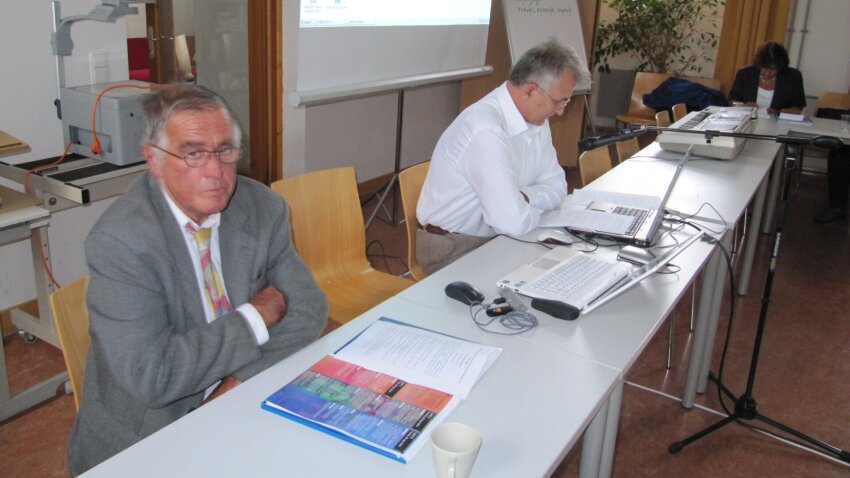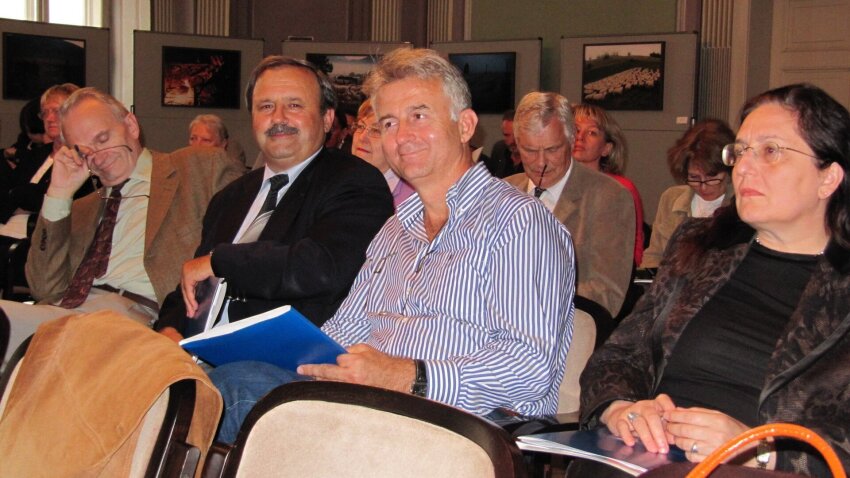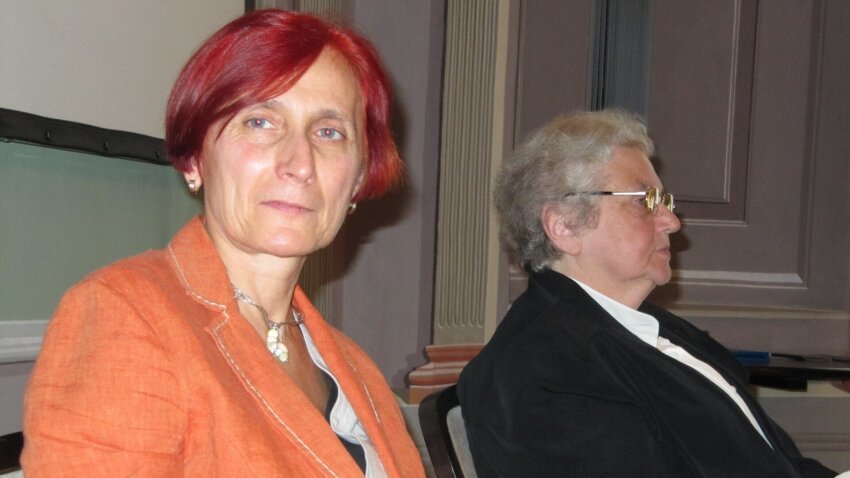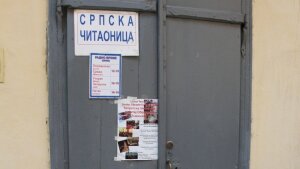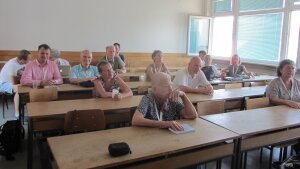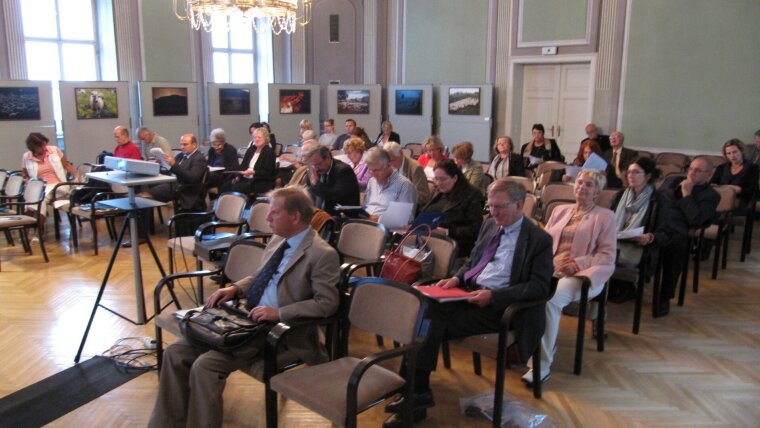
Poster of the Conference in Vienna 2010.
Illustration: Elton PriftiOverview
The international conference of the Commission for Balkan Linguistics at the International Committee of Slavists took place in Vienna from 3 to 5 September 2010. It was hosted by Prof. Dr. Thede Kahl and Prof. Dr. Michael Metzeltin, who organised the event in cooperation with the Institute of Romance Studies at the University of Vienna and the Austrian Academy of Sciences.
Under the umbrella theme ‘Balkanisms today’, more than thirty experts from Europe and overseas gathered to discuss the current state of research, methodological approaches and new perspectives in Balkan linguistics.
The conference was officially opened on 3 September 2010 in the theatre hall of the Austrian Academy of Sciences (Sonnenfelsgasse 19). After welcoming remarks by the chair of the commission, Prof. Dr. Helmut W. Schaller, and the host, Prof. Dr. Thede Kahl, the special significance of Vienna for the history of Balkan linguistics was highlighted: Names such as Bartholomäus Kopitar and Franz Miklosich are paradigmatic for the beginnings of areal-typological research in the Balkans and have shaped the scientific self-image of this discipline to this day. The actual conference programme took place on 4 and 5 September at the Institute of Romance Studies (University Campus, Hof 8). The presentations were divided into several thematic sections and reflected the great diversity of Balkan linguistic research – from historical and typological descriptions to sociolinguistic and field research-based approaches.
Katja Sturm-Schnabl presenting her paper.
Foto: Thede KahlThe discussions focused on questions of the definition and delimitation of so-called Balkanisms, areal-typological models, grammatical convergence phenomena, lexical interference, and diachronic developments in the Balkan language community. In addition to classic topics such as the syntax of possession, phraseology, and aspect and tense systems, new theoretical approaches were presented, such as the application of the markedness theory of linguistic change and cognitive-semantic approaches in the analysis of Balkan phraseologisms. A special focus was placed on empirical research and fieldwork: several speakers reported on recent studies of language change processes in Kosovo and on contact phenomena in Aromanian.
Petja Asenova also presented the anthology she edited, ‘Glagolnata sistema na balkanskite ezici – nasledstvo i neologija’ (Veliko Tărnovo 2009).
The conference was brought to a successful close with a ‘Romantic Vienna Programme with Balkan Surprises’ organised by Thede Kahl, which gave participants the opportunity to experience the historic city from a linguistic and cultural-historical perspective.
